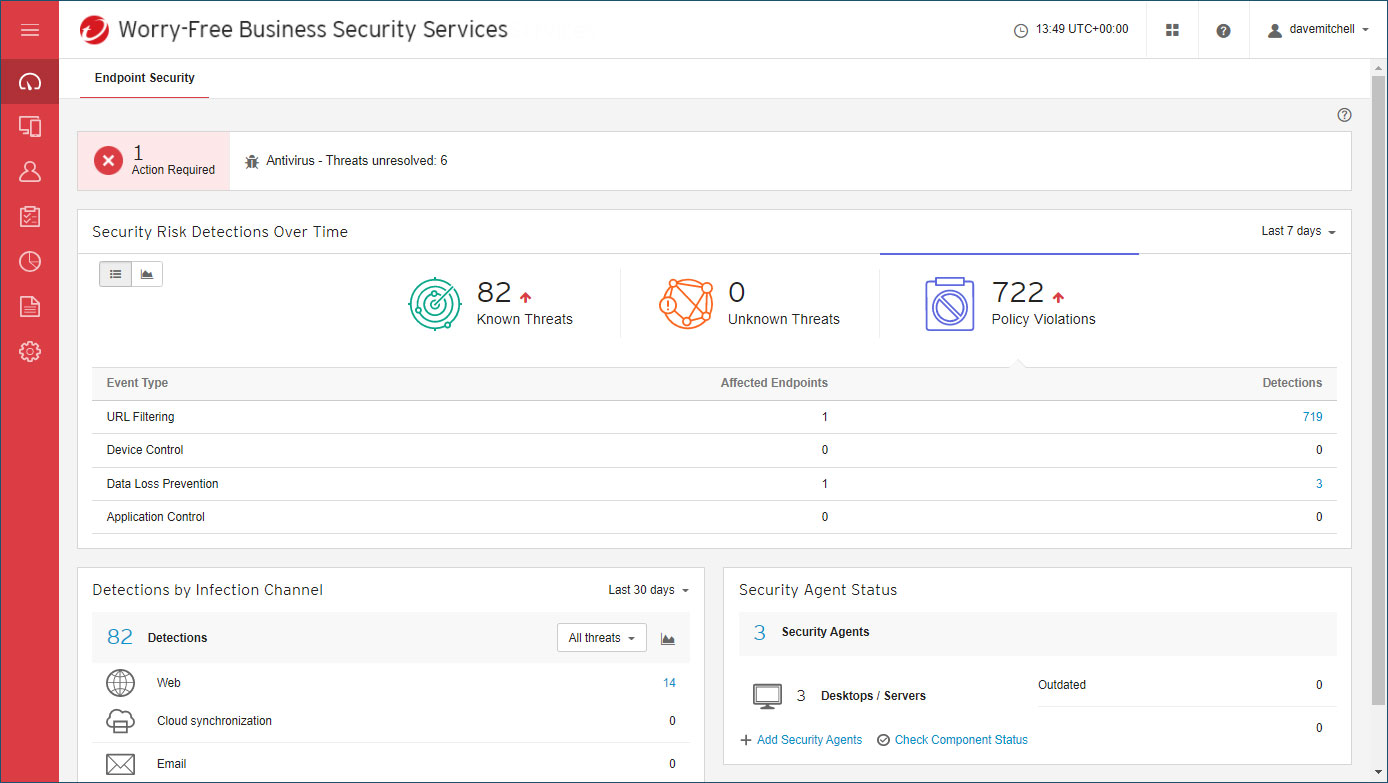More than 1,000 Android apps "deceptively" harvest personal data
The apps circumvent Android permissions designed to keep personal data out of the hands of developers


Researchers have discovered more than 1,000 Android apps have the power to share and receive personal information even when the user explicitly forbids the collection of data.
The findings were presented to attendees at PrivacyCon 2019 in the US, and they don't just focus on obscure apps. Indeed, big name firms including Disney and Samsung were cited for releasing apps that flout the privacy conventions users have come to expect.
All of the affected apps share one commonality - they all run on the same software developer kit (SDK). The one in question here is made by Chinese tech giant Baidu with help from an analytics firm called Salmonads.
SDKs are sets of tools given to developers to make building applications easier - like a framework on which to base the project instead of having to code it all from scratch. It's like if all VW Polos, Audi S3s and Ford Focus' were built using the same axel - they're all different but share the same backbone.
Let's imagine there are two apps: App 1 and App 2. Both are built on the same Baidu SDK but the user has revoked permissions for App 1 to collect personal data. The user hasn't revoked App 2's data collection permissions, though. So, because of this, App 1 can still gather data from App 2's collection as they're both built on the same SDK.
In terms of what data has actually been collected, it's a bit of a mixed bag. Device MAC addresses were the most pervasively collected forms of data, but router MAC addresses and device IMEI numbers were also collected. In one particular case, GPS data was also gathered.
The app that collected GPS data is called Shutterfly and has been downloaded more than 138,000 times on the Google Play store at the time of publication. It collected GPS data using EXIF metadata from user images and sent it back to its own servers with no location permission.
Get the ITPro daily newsletter
Sign up today and you will receive a free copy of our Future Focus 2025 report - the leading guidance on AI, cybersecurity and other IT challenges as per 700+ senior executives
"While this app may not be intending to circumvent the permission system, this technique can be exploited by a malicious actor to gain access to the user's location," read the study. "Whenever a new picture is taken by the user with geolocation enabled, any app with read access to the photo library can learn the user's precise location when said picture was taken.
"Furthermore, it also allows obtaining historical geolocation fixes with timestamps from the user, which could later be used to infer sensitive information about that user," it added.
In reference to the apps acquiring MAC address information, the researchers said Android natively protects access device and router MAC addresses with separate permissions. Regardless, they still observed apps accessing the addresses without having the permissions.
The apps gained access to the addresses with side-channels, using C++ native code to invoke a number of unguarded UNIX system calls. These methods were referred to as "deceptive" which could mislead even the most diligent user.
The US' Federal Trade Commission (FTC) has fined mobile operators and third-party libraries for exploiting side-channels and using MAC addresses to infer a user's location.
The researchers said that with the next version of the mobile operating system Android Q which is currently in beta, some of the issues outlined by their findings will be fixed, but that might not be good enough.
Android OS updates are not mandatory and many users, according to statistics, aren't very diligent when it comes to upgrading to the latest version - just 10.4% of Android users are on the latest Android 9 Pie installation, for example.

Connor Jones has been at the forefront of global cyber security news coverage for the past few years, breaking developments on major stories such as LockBit’s ransomware attack on Royal Mail International, and many others. He has also made sporadic appearances on the ITPro Podcast discussing topics from home desk setups all the way to hacking systems using prosthetic limbs. He has a master’s degree in Magazine Journalism from the University of Sheffield, and has previously written for the likes of Red Bull Esports and UNILAD tech during his career that started in 2015.
-
 Should AI PCs be part of your next hardware refresh?
Should AI PCs be part of your next hardware refresh?AI PCs are fast becoming a business staple and a surefire way to future-proof your business
By Bobby Hellard Published
-
 Westcon-Comstor and Vectra AI launch brace of new channel initiatives
Westcon-Comstor and Vectra AI launch brace of new channel initiativesNews Westcon-Comstor and Vectra AI have announced the launch of two new channel growth initiatives focused on the managed security service provider (MSSP) space and AWS Marketplace.
By Daniel Todd Published
-
 APIs: Understanding the business benefits and risks
APIs: Understanding the business benefits and riskswhitepaper What you need to know about potential data exposure from APIs
By ITPro Published
-
 Apple patches actively exploited iPhone, iPad zero-day and 18 other security flaws
Apple patches actively exploited iPhone, iPad zero-day and 18 other security flawsNews The out-of-bounds write error is the eighth actively exploited zero-day impacting Apple hardware this year and could facilitate kernel-level code execution
By Rory Bathgate Published
-
 Qualcomm and Mediatek flaws left millions of Android users at risk
Qualcomm and Mediatek flaws left millions of Android users at riskNews An open source audio codec used by chipset firms is believed to have put two-thirds of Android users' private calls and files at risk
By Connor Jones Published
-
 Businesses on alert as mobile malware surges 500%
Businesses on alert as mobile malware surges 500%News Researchers say hackers are deploying new tactics that put Android and iOS at equal risk
By Connor Jones Published
-
 Apple fixes array of iOS, macOS zero-days and code execution security flaws
Apple fixes array of iOS, macOS zero-days and code execution security flawsNews The first wave of security updates for Apple products in 2022 follows a year in which a wide variety of security flaws plagued its portfolio of devices
By Connor Jones Published
-
 Trend Micro Worry-Free Business Security review: Great cloud-managed malware protection
Trend Micro Worry-Free Business Security review: Great cloud-managed malware protectionReviews A reassuringly simple endpoint-protection solution – although mobile support is basic
By Dave Mitchell Published
-
 Over 300,000 Android users downloaded banking trojan malware
Over 300,000 Android users downloaded banking trojan malwareNews Hackers defeated Google Play restrictions by using smaller droppers in apps and eliminating permissions needed
By Rene Millman Published
-
 Flaw in Android phones could let attackers eavesdrop on calls
Flaw in Android phones could let attackers eavesdrop on callsNews The vulnerable chips are thought to be present in 37% of all smartphones worldwide
By Rene Millman Published